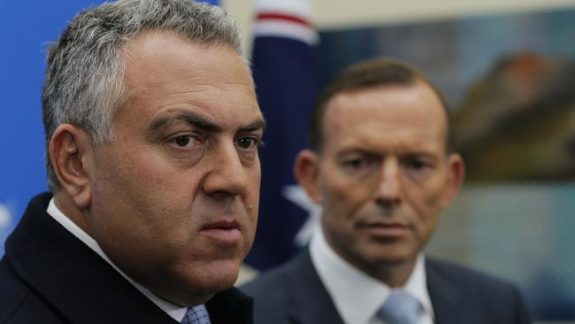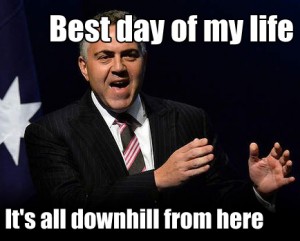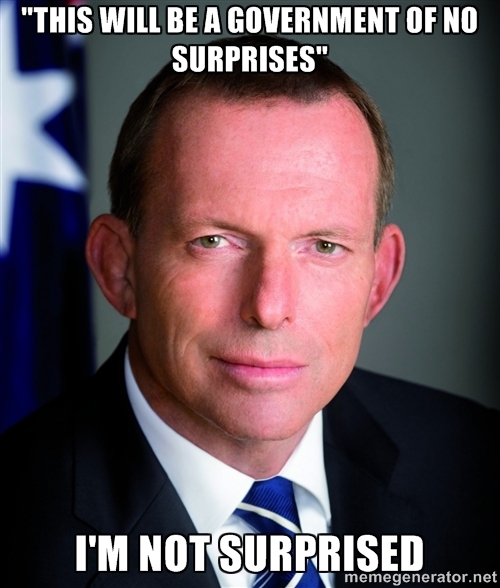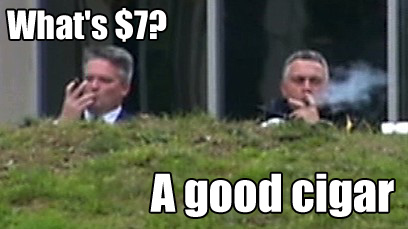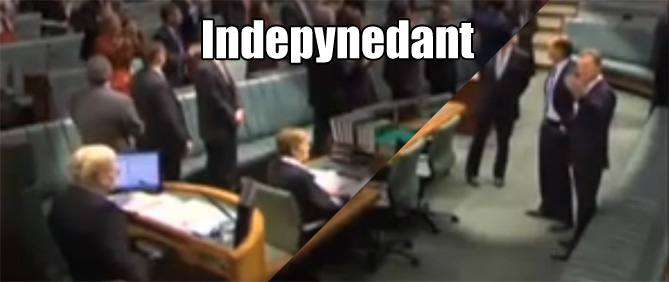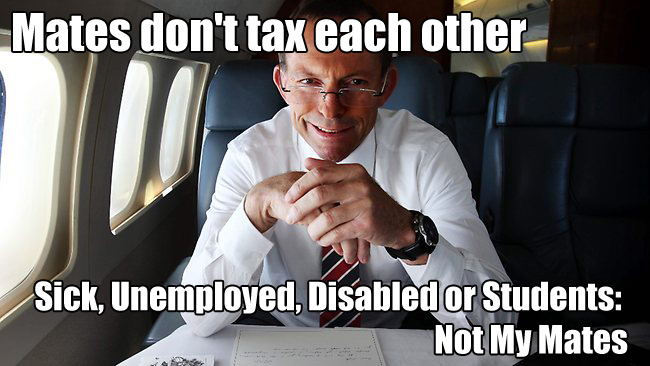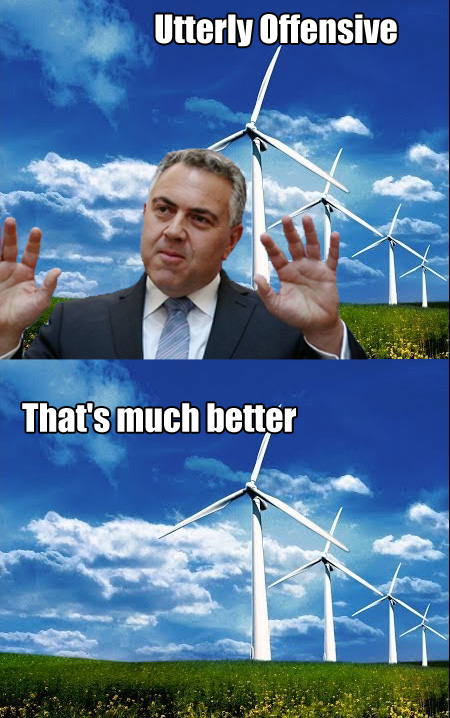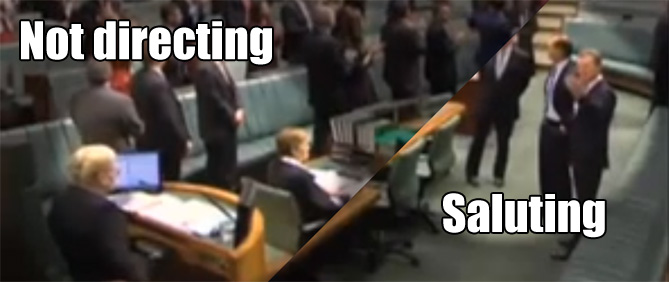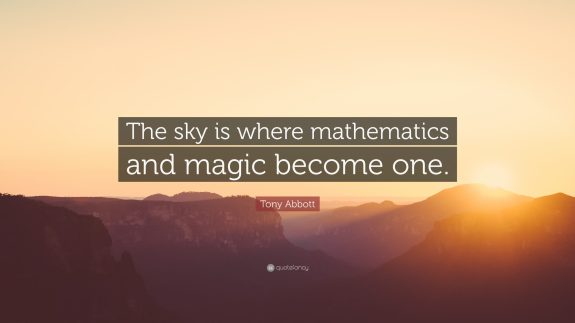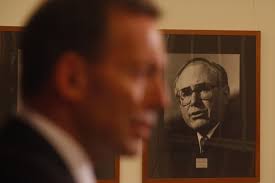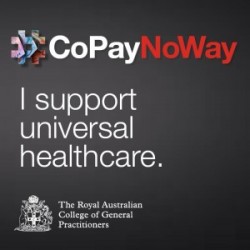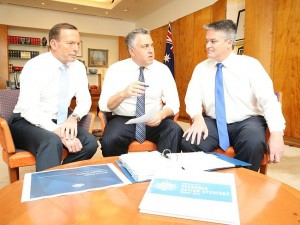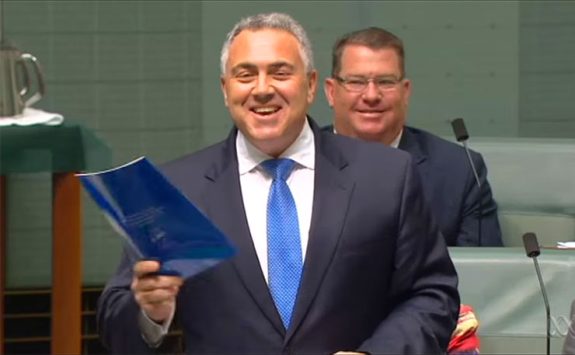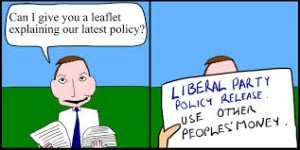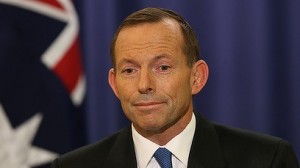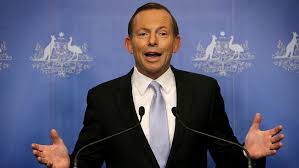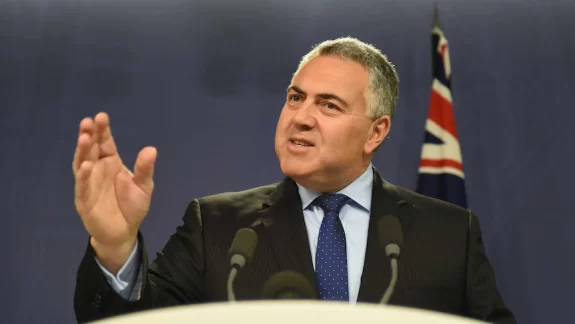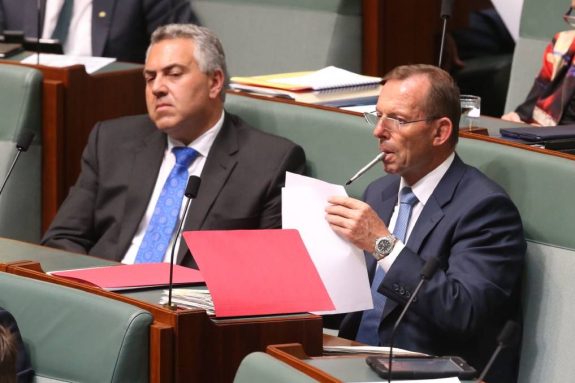No ‘love’ in the Abbott Government’s ‘tough’
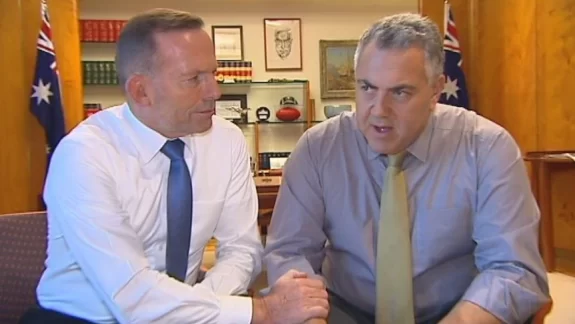
Prime Minister Tony Abbott and Treasurer Joe Hockey have taken to describing their budgetary cruelty as an act of “tough love” for which we may well rail against them in the present, but will respect them for in the years ahead, presumably when we can see how their tough love has achieved the goal of all tough love, that is to bring the poor amongst us to their senses and force them to live non-vulnerable, standing-on-their-own-two-feet lives, or die.
Tough love is a phrase usually associated with advice given to parents of drug-addicted offspring: refuse support in order to achieve a drug-free outcome. It demands that one have sufficient strength to withdraw all assistance that might enable the addict to continue on their self-destructive path. It requires the stamina to watch another spiral into an abject desolation and marginalisation that is allegedly entirely his or her own doing, and in which, the theory would have it, the addict will hit their own personal bottom line and in so doing begin the long trip back to sobriety and a decent life. I have no idea if it works or not.
There is no love in the tough Abbott and Hockey are dealing out to the vulnerable who will bear the brunt of their withdrawal of government support. Indeed, it is very telling that Abbott and Hockey appear to equate (with no evidence whatsoever to support their bigoted assumptions) economic vulnerability with anti social addictions, and have set about “curing” the vulnerability by withdrawing already meagre support in the deranged belief that if you make people starve, they will stop being vulnerable. Vulnerability is, in the Abbott and Hockey ideology, a choice, and people must be forced to stop making it by using the harshest possible methods until they hit their bottom line, and wake up one morning enlightened, repentant, and ready to get a job.
This government has no interest in equality. The admirable ethos of the “fair go”, so inimical to what we fondly think of as our national character, has been mangled beyond recognition in the first few months of the Abbott incumbency. Instead, we have Hockey thundering why should you pay for someone else’s education, completely overlooking the fact that someone else paid for his. We contribute to the costs of educating others because it benefits all of us. Educating people gives us the professionals who are absolutely essential to our daily lives and well-being.
Abbott and his government are in the business of installing a new regime of truth, one that is foreign to us, a regime that casts fairness and concern for others in a negative light, a move that is made even more inexplicable by the Christian affiliations of the PM and his Treasurer. The marriage of religion and neo liberalism apparently spawns an extreme of wilful ignorance, and the inevitably cruelty that accompanies the trait.
In his excellent piece in The King’s Tribune, Tim Dunlop argues that progressives need to change the current conversation, that there is little to be gained in agitating for a change in LNP leadership, or castigating Abbott, pining for Turnbull or bringing back the ALP in its current configuration. The Australian ALP appears to be in its own downward spiral, following the lead of the UK Labour Party, described by George Monbiot in this Guardian piece as selfishly committed to inequality in its acts of omission, and its commitment to supporting aspects of the obscene Tory attacks on that county’s vulnerable.
What progressives must do, Dunlop argues, is work from the premise that we do want a country in which it is possible to offer everyone a fair crack at a decent life, a premise that will lead us in a very different direction from that offered by the LNP. The way in which we might achieve this revolution is by vocalising our resistance to the government’s imposition of inequality as a way of life in our country, using protest and withdrawal of labour. Where there is power there is always resistance, as Foucault noted, and the most powerful form of resistance available to citizens in situations such as ours is taking to the streets, as often as we have to, and letting the government know we are not a people who desire the increased suffering of the already vulnerable, rather we are a people who will fight for the fair go.
There is no love in the Abbott government’s tough. Much as Abbott and Hockey seek to portray themselves as men of character who are willing to risk short-term popularity for long-term gain, the reality is these men have gone for the jugular of the most vulnerable human beings in our country. There will be no long-term gain for the vulnerable. There will be increasing hardship, despair and disintegration. Abbott and Hockey will deliver us a new underclass, generations of citizens who have never been given a fair go.
Vulnerable people have never experienced entitlement, that is the province of the wealthy and comfortable. The age of entitlement is not over, it thrives. The age of the fair go has come to a sticky end, and we will all be the poorer for its death.
This article was originally published on No Place For Sheep.
Like what we do at The AIMN?
You’ll like it even more knowing that your donation will help us to keep up the good fight.
Chuck in a few bucks and see just how far it goes!










